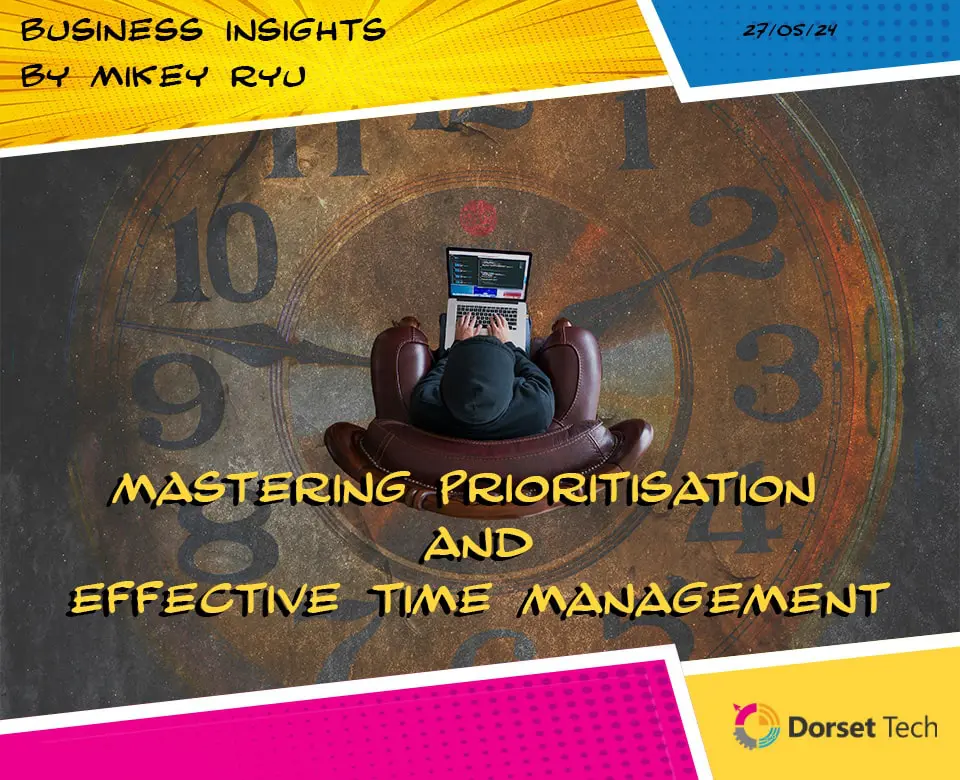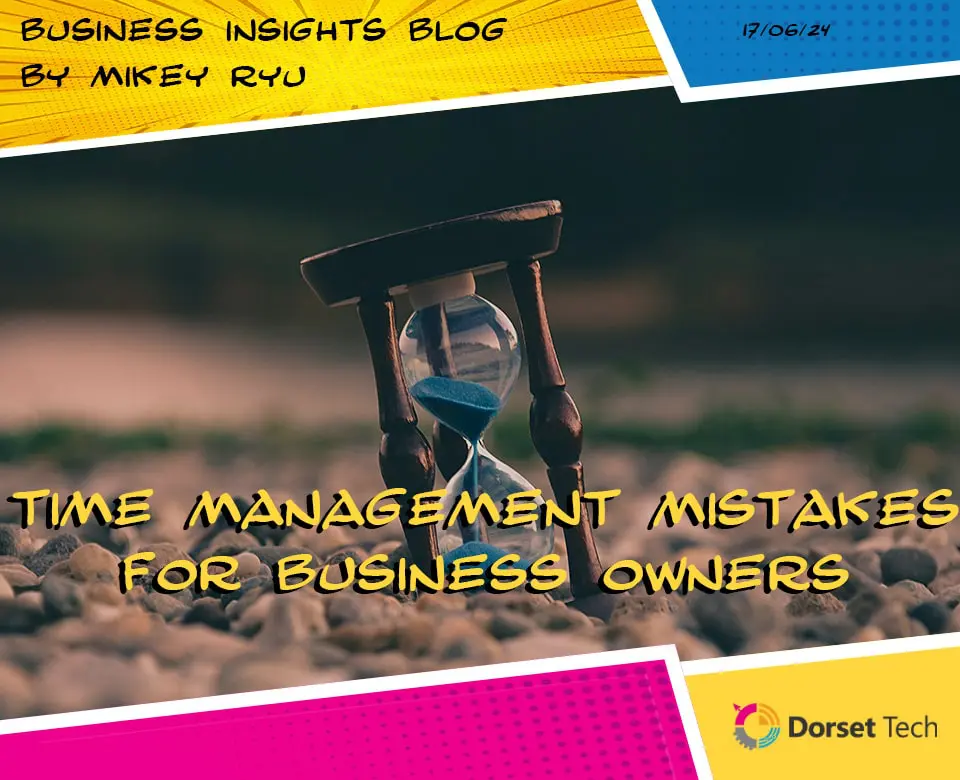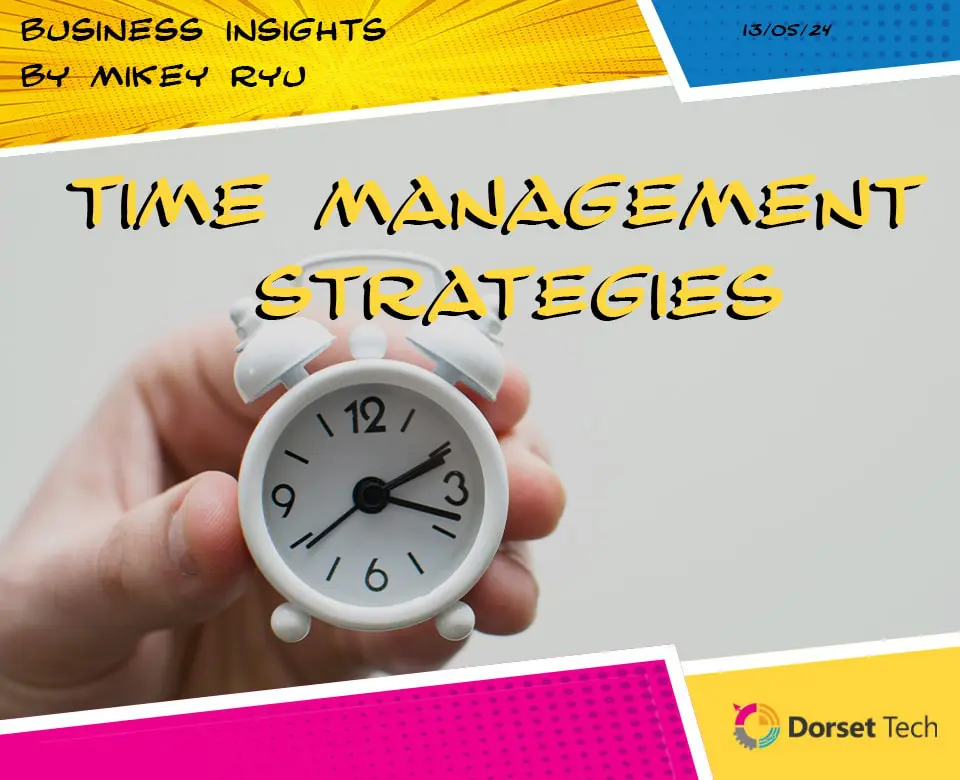
Mastering Prioritisation and Effective Time Management
As an Employee-owned business, we understand the struggles of running a company, from bringing in sales to keeping clients happy to task prioritisation and we are here to help. With numerous tasks vying for your attention, it’s easy to feel overwhelmed. This blog will provide you with strategies and insights to master prioritisation and manage your time effectively, ensuring your business runs smoothly and efficiently. This blog aims to help you master the prioritisation of your tasks and manage your time so that nothing that’s urgent gets missed.
Understanding Prioritisation
The Importance of Prioritisation
Prioritisation is crucial because it helps you focus on what truly matters. By distinguishing between urgent and important tasks, you can allocate your time and resources more effectively, avoiding the trap of constant firefighting.
The Eisenhower Matrix
One of the most effective tools for prioritisation is the Eisenhower Matrix, named after President Dwight D. Eisenhower. This matrix categorises tasks into four quadrants:
- Urgent and Important: Tasks that require immediate attention. Examples include crises, deadlines, and pressing problems.
- Not Urgent but Important: Long-term goals and strategic activities. This is where you should aim to spend most of your time.
- Urgent but Not Important: Tasks that are often interruptions or distractions. Delegate these whenever possible.
- Not Urgent and Not Important: Low-value activities. Minimise or eliminate these from your schedule.
Setting Clear Goals
Clear, well-defined goals provide direction and make it easier to prioritise tasks. Use the SMART criteria to set goals that are Specific, Measurable, Achievable, Relevant, and Time-bound. This clarity helps in identifying which tasks align with your objectives and deserve your focus.
Effective Time Management Techniques
Time Blocking
Time blocking is a method where you schedule your day into blocks of time, each dedicated to a specific task or group of tasks. This approach helps you stay focused on one task at a time, reducing the likelihood of distractions.
The Pomodoro Technique
The Pomodoro Technique involves working for a set period, usually 25 minutes, followed by a short break. This cycle is repeated several times with longer breaks after every fourth session. This method boosts productivity by maintaining high levels of focus and preventing burnout.
The Two-Minute Rule
The Two-Minute Rule, popularised by David Allen in his book Getting Things Done, suggests that if a task can be completed in two minutes or less, you should do it immediately. This prevents small tasks from accumulating and cluttering your to-do list.
Delegation
Delegation is essential for effective time management. Identify tasks that can be handed off to others, allowing you to focus on higher-priority activities. Effective delegation involves clearly communicating the task, providing the necessary resources, and trusting your team to execute.
Tools for Prioritisation and Time Management
Task Management Apps
There are numerous apps available that can help you manage tasks and stay organised. Tools like Trello, Asana, and Monday.com offer features like task lists, project boards, and collaboration tools that can streamline your workflow.
Calendar Apps
Utilise calendar apps like Google Calendar or Outlook to schedule your tasks and appointments. These tools often integrate with other apps, allowing you to manage your time and commitments from a single platform.
Time Tracking Software
Time tracking tools like Toggl and Clockify help you monitor how much time you spend on different tasks. This data can reveal patterns and inefficiencies, enabling you to adjust your schedule for better productivity.
Overcoming Common Time Management Challenges
Dealing with Procrastination
Procrastination is a common challenge that can derail your productivity. Combat it by breaking tasks into smaller, manageable steps, setting deadlines, and using techniques like the Pomodoro Technique to maintain focus.
Managing Interruptions
Interruptions are inevitable, but you can minimise their impact. Set boundaries by designating specific times for meetings and communications, and use tools like “Do Not Disturb” mode on your devices to limit distractions during focused work periods.
Avoiding Multitasking
Multitasking can reduce efficiency and increase stress. Focus on one task at a time, completing it before moving on to the next. This approach, known as single-tasking, enhances the quality of your work and reduces the cognitive load.
Building a Productive Mindset
Mindfulness and Meditation
Incorporating mindfulness and meditation into your routine can improve focus, reduce stress, and enhance your overall well-being. Practices like deep breathing, guided meditation, and mindful breaks can help you stay present and productive.
Continuous Improvement
Adopt a mindset of continuous improvement by regularly reviewing and refining your time management practices. Seek feedback, stay open to new ideas, and be willing to adapt your strategies as needed.
Self-Care
Taking care of your physical and mental health is crucial for maintaining productivity. Ensure you get enough sleep, eat a balanced diet, exercise regularly, and take breaks to recharge. A well-rested and healthy body and mind are essential for effective time management.
Conclusion
Mastering prioritisation and effective time management is a journey that requires commitment and practice. By implementing the strategies discussed in this blog, you can take control of your time, reduce stress, and achieve your business goals more efficiently. Remember, the key is to focus on what truly matters, delegate when possible, and continuously seek ways to improve. With these skills, you can navigate the demands of running a business with greater ease and success.





















